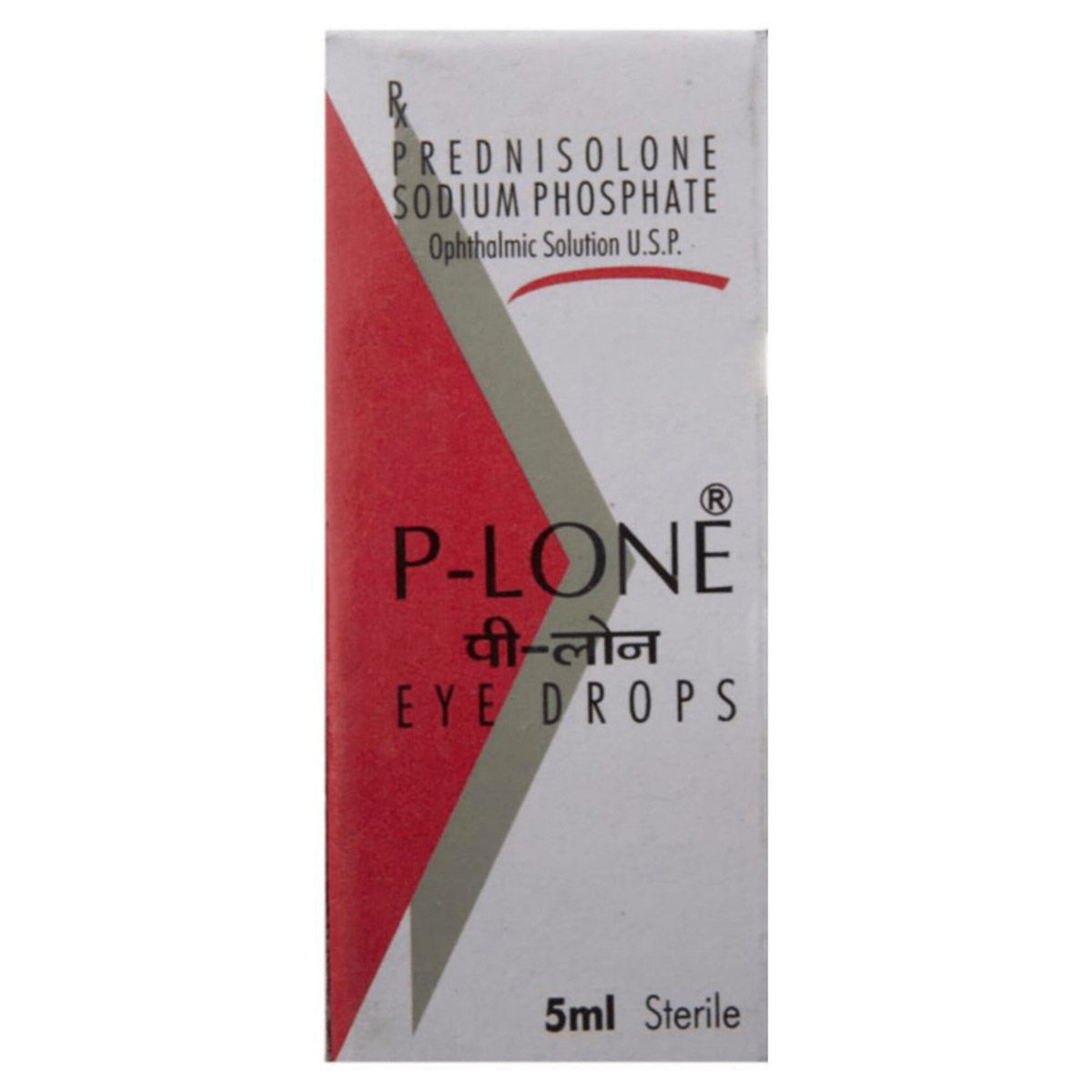Zivipred 1% Eye Drops 10 ml
₹31.59*
MRP ₹35.1
10% off
₹29.83*
MRP ₹35.1
15% CB
₹5.27 cashback(15%)
Free Delivery
With Circle membership
(Inclusive of all Taxes)
This offer price is valid on orders above ₹800. Apply coupon PHARMA10/PHARMA18 (excluding restricted items)
Know Your Delivery Time
Provide Delivery Location

Available Offers
 Prescription drug
Prescription drugWhats That

Secure Payment

India's Most Trusted Pharmacy

Genuine Products
Synonym :
Composition :
Manufacturer/Marketer :
Consume Type :
Return Policy :
Expires on or after :
About Zivipred 1% Eye Drops
Zivipred 1% Eye Drops belongs to the class of corticosteroid medication or ophthalmic anti-infectives. It is used to relieve eye irritation, redness, burning, and swelling caused by chemicals, radiation, heat, infection, allergies, or foreign substances in the eye. Besides this, it is sometimes used following eye surgery.
Zivipred 1% Eye Drops contains prednisolone, a corticosteroid medicine. It works by inhibiting the release of certain chemical messengers in the body that cause redness, itching and swelling.
Use Zivipred 1% Eye Drops as prescribed by your doctor. The common side-effects of Zivipred 1% Eye Drops are application site burning or stinging sensation, redness and temporary blurred vision. Most of these side effects resolve gradually over time without the need for medical intervention. However, you should consult your doctor if you experience these side effects frequently.
Zivipred 1% Eye Drops is for ophthalmic use only. It should not be injected or consumed orally. You should not use Zivipred 1% Eye Drops if you are allergic to prednisolone, other corticosteroid medications, or any of the components in Zivipred 1% Eye Drops. Notify your doctor if you are pregnant or breastfeeding. You may notice temporary blurred vision after using this medication. Before operating machinery or driving, wait until your vision returns to normal.
Uses of Zivipred 1% Eye Drops
Directions for Use
Medicinal Benefits
Zivipred 1% Eye Drops contains prednisolone, a corticosteroid medicine. Zivipred 1% Eye Drops works by inhibiting the release of certain chemical messengers in the body that cause redness, itching and swelling. Thus it effectively relieves eye irritation, redness, burning, and swelling caused by chemicals, radiation, heat, infection, allergies, or foreign substances in the eye. Besides this, it is sometimes used following eye surgery.
How Zivipred 1% Eye Drops Works
Storage
Side Effects of Zivipred 1% Eye Drops
Temporary eye burning or stinging sensation
Temporary blurred vision
What if I have taken an overdose of Zivipred 1% Eye Drops
Drug Warnings
Do not use Zivipred 1% Eye Drops if you are allergic to prednisolone, other corticosteroid medications, or any of the components in Zivipred 1% Eye Drops. Zivipred 1% Eye Drops is only to be used in the eyes. Zivipred 1% Eye Drops should never be injected or used orally. If you are pregnant, planning for pregnancy or breastfeeding, inform your doctor. You may notice temporary blurred vision after using this medication. Before operating machinery or driving, wait until your vision returns to normal. Before using Zivipred 1% Eye Drops, consult your doctor if you have vision problems, severe eye pain, glaucoma (high blood pressure in the eye), eye damage, or eye surgery. Zivipred 1% Eye Drops should not be used for any longer than your doctor has prescribed. Zivipred 1% Eye Drops should not be used to treat any other eye infections.
Drug-Drug Interactions
Drug-Drug Interactions
Login/Sign Up
Co-administration of Iohexol and Zivipred 1% Eye Drops 10 ml can increase the risk of side effects.
How to manage the interaction:
Taking Zivipred 1% Eye Drops 10 ml with Iohexol is not generally advised as they can lead to an interaction, they can be taken if prescribed by the doctor. Do not discontinue the medications without consulting a doctor.
When BCG vaccine is used with Zivipred 1% Eye Drops 10 ml, its effectiveness may be reduced.
How to manage the interaction:
Taking Zivipred 1% Eye Drops 10 ml with BCG vaccine is not generally advised, but they can be taken if prescribed by the doctor. Do not discontinue any medications without a doctor's advice.
Co-administration of Zivipred 1% Eye Drops 10 ml and Desmopressin may increase the risk of hyponatremia (low levels of sodium in the blood).
How to manage the interaction:
Taking Zivipred 1% Eye Drops 10 ml with Desmopressin is not generally advised as they lead to an interaction, they can be taken together if advised by a doctor. However, if you experience loss of appetite, headache, nausea, vomiting, lethargy (very tired), irritability, difficulty concentrating, weakness, unsteadiness, memory impairment, confusion, muscle spasm, decreased urination, and/or sudden weight gain, contact a doctor immediately. Do not discontinue the medication without consulting a doctor.
When Mifepristone is taken with Zivipred 1% Eye Drops 10 ml, the effects of Zivipred 1% Eye Drops 10 ml might be considerably reduced, which may be less effective in treating your condition.
How to manage the interaction:
Taking Zivipred 1% Eye Drops 10 ml with Mifepristone is not recommended, they can be taken together if advised by a doctor. Do not discontinue the medication without consulting a doctor.
Co-administration of Adalimumab with Zivipred 1% Eye Drops 10 ml can increase the risk of developing serious infections.
How to manage the interaction:
Although there is a possible interaction between Zivipred 1% Eye Drops 10 ml and Adalimumab, you can take these medicines together if prescribed by a doctor. However, if you experience fever, chills, diarrhea, sore throat, muscle pains, breathing difficulty, blood in your coughing fluid, weight loss, red or irritated skin, body sores, and discomfort or burning when you urinate, consult a doctor. Do not stop using any medications without a doctor's advice.
Co-administration of Sparfloxacin may cause tendinitis (inflammation of a tissue that attaches muscle to bone) and tendon rupture, and the risk may be increased when combined with Zivipred 1% Eye Drops 10 ml. People over the age of 60 and people who have had a kidney, heart, or lung transplant may be especially at risk.
How to manage the interaction:
Although there is an interaction, Zivipred 1% Eye Drops 10 ml can be taken with Sparfloxacin if prescribed by the doctor. However, if you experience pain, inflammation, or swelling of a tendon area such as the back of the ankle, biceps, shoulder, hand, or thumb, stop taking sparfloxacin and consult your doctor. Additionally, you need to avoid exercising or using the impacted area until a doctor issues further instructions. Do not stop using any medications without a doctor's advice.
Co-administration of Bempedoic acid and Zivipred 1% Eye Drops 10 ml can increase the risk of tissue injury near muscles and joints.
How to manage the interaction:
Although there is an interaction, Bempedoic acid can be taken with Zivipred 1% Eye Drops 10 ml if prescribed by the doctor. However, if you experience pain, swelling, or inflammation of a tendon area such as the back of the ankle, shoulder, or biceps, stop taking bempedoic acid and consult a doctor. Exercise and using the impacted area should both be avoided. Do not discontinue any medications without a doctor's advice.
Co-administration of Zivipred 1% Eye Drops 10 ml and Ibuprofen can increase the risk of side effects of each other.
How to manage the interaction:
A combination of Zivipred 1% Eye Drops 10 ml and Ibuprofen can lead to an interaction, it can be taken if advised by a doctor. Do not stop using any medications without a doctor's advice.
Co-administration of Norfloxacin may cause tendinitis (inflammation of a tissue that attaches muscle to bone) and tendon rupture, and the risk may be increased when combined with Zivipred 1% Eye Drops 10 ml. People over the age of 60 and people who have had a kidney, heart, or lung transplant may be especially at risk.
How to manage the interaction:
Although there is an interaction, Zivipred 1% Eye Drops 10 ml can be taken with Norfloxacin if prescribed by the doctor. However, if you experience pain, inflammation, or swelling of a tendon area such as the back of the ankle, biceps, shoulder, hand, or thumb, stop taking norfloxacin and consult a doctor. Do not discontinue any medications without consulting a doctor.
Co-administration of Moxifloxacin may cause tendinitis (inflammation of a tissue that attaches muscle to bone) and tendon rupture (injuries to the soft tissues that connect muscles and joints).
How to manage the interaction:
Although there is an interaction, Zivipred 1% Eye Drops 10 ml can be taken with Moxifloxacin if prescribed by the doctor. However, if you experience pain, inflammation, or swelling of a tendon area (back of the ankle, biceps, shoulder, hand, or thumb), consult a doctor. Do not stop using any medications without a doctor's advice.
Drug-Food Interactions
Drug-Food Interactions
Login/Sign Up
Diet & Lifestyle Advise
Get at least six to eight hours of sleep each night to renew your eyes.
It would help if you washed your eyes with clean water. If you've had eye surgery, wait at least two weeks before washing your eyes.
Take care of your health, eat a balanced diet, get plenty of exercises, and rest well.
Habit Forming
Therapeutic Class
Zivipred 1% Eye Drops Substitute

Predace 1% Eye Drops 10 ml
₹5.81per tabletP-Lone Eye Drops 10 ml
₹5.81per tabletPredina Eye Drop 10 ml
₹5.72per tabletSenzpred 10Ml Eye Drops
₹57.60per tabletTrupred 1% Eye Drop 10 ml
₹5.76per tablet
Product Substitutes
Alcohol
Caution
No interactions were found; however, it is advisable not to take or limit alcohol as a precautionary measure.
Pregnancy
Caution
Please consult the doctor. There are no adequate and well-controlled studies on pregnant women. Your doctor will prescribe only if the benefits outweigh the risks.
Breast Feeding
Caution
Consult your doctor; there is no substantial research yet on the usage of Zivipred 1% Eye Drops in breastfeeding/nursing mothers.
Driving
Caution
Zivipred 1% Eye Drops may cause blurred vision temporarily. Before driving or operating any machinery, wait until your vision has returned to normal.
Liver
Caution
No information was available about the usage of Zivipred 1% Eye Drops in patients with liver disease. Please consult your physician.
Kidney
Caution
No information was available about the usage of Zivipred 1% Eye Drops in patients with kidney disease. Please consult your physician.
Children
Caution
Zivipred 1% Eye Drops should only be used in children under the supervision of a doctor or as directed by the doctor.
FAQs
Country of origin
Manufacturer/Marketer address
Disclaimer
Author Details
We provide you with authentic, trustworthy and relevant information
Reference
- https://medlineplus.gov/druginfo/meds/a682794.html
- https://www.mayoclinic.org/drugs-supplements/prednisolone-ophthalmic-route/side-effects/drg-20406320?p=1#:~:text=Prednisolone%20eye%20drops%20is%20also,only%20with%20your%20doctor's%20prescription.
- https://www.scottpautlermd.com/prednisone-for-eye-inflammation/










.jpg?tr=q-80)






